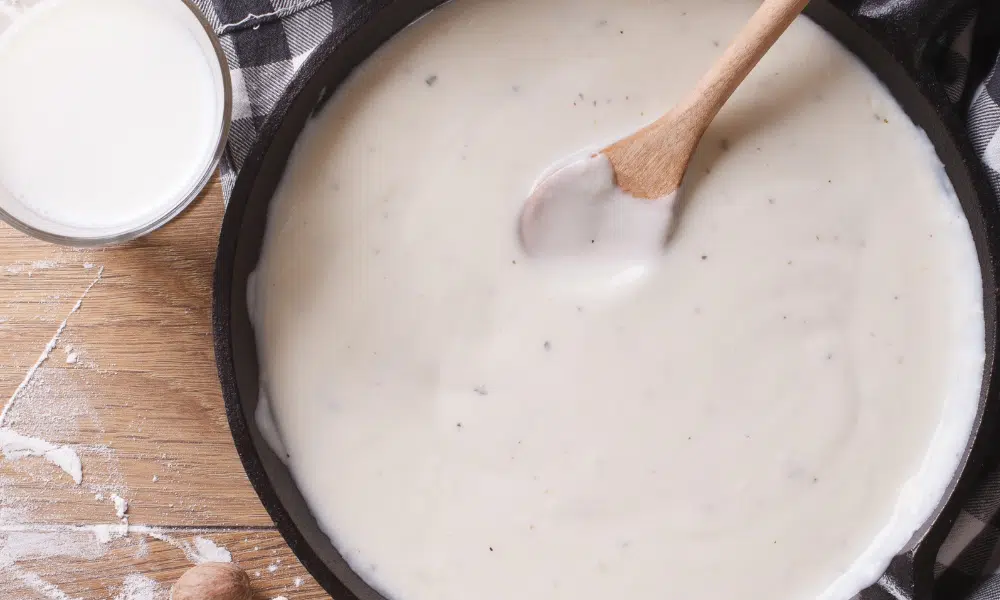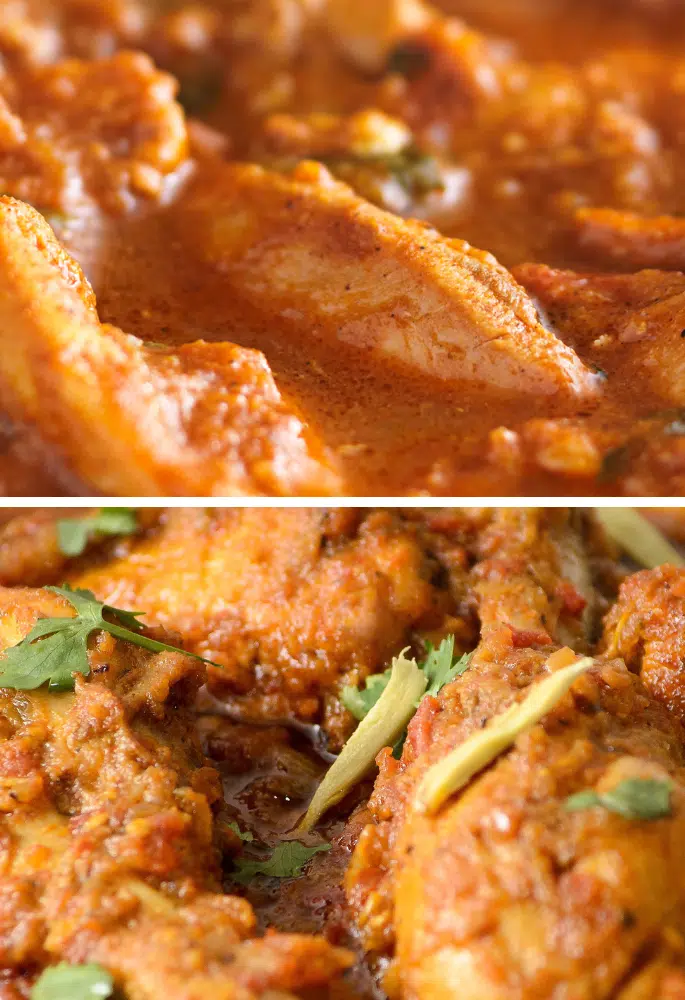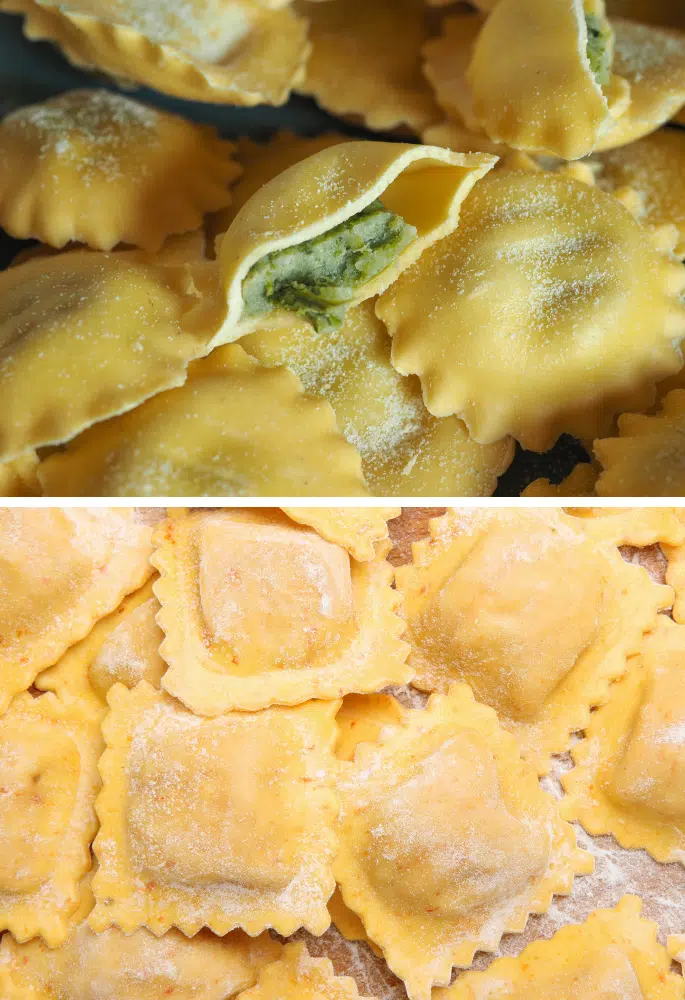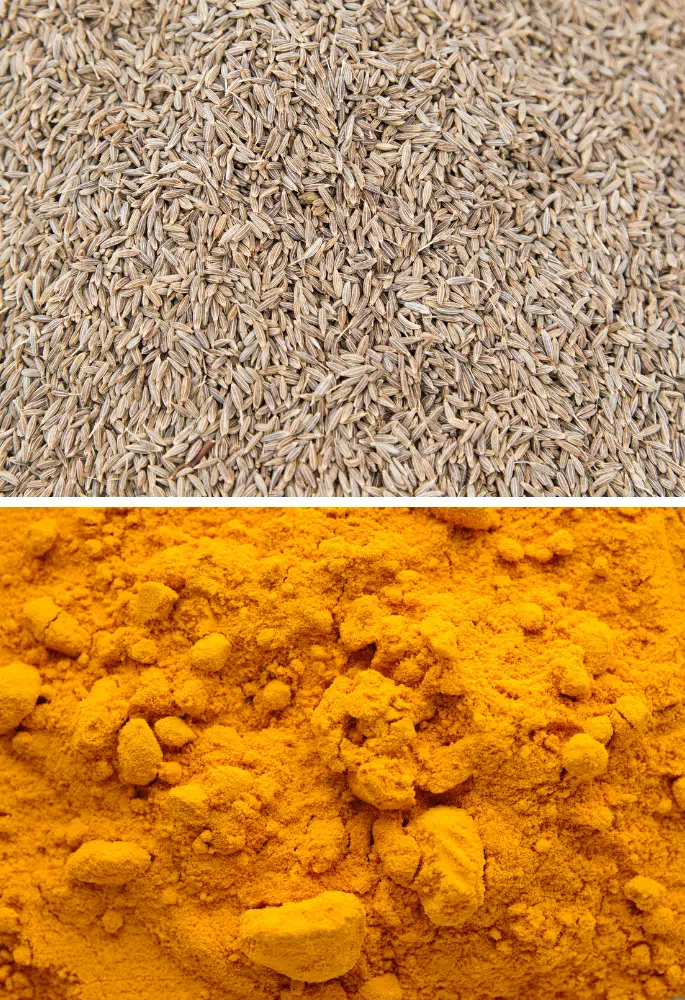What is one sauce that is sure to bring instant comfort no matter what season or what dish it is included in? Cheese sauce, of course! The creamy, perfectly smooth texture. The buttery thickness. It has it all.
Cheese sauce is simple to make once you crack the basics of forming a quick roux and figuring out the right cheese-to-milk ratio. But what if you only have self raising flour to hand instead of plain flour?
The only noticeable difference that self raising flour will make to your cheese sauce is that it will make it taste a little saltier. So long as you keep this in mind when seasoning the sauce, you should have no issues at all.
How Self Raising Flour Differs From Plain Flour
In other places around the world, plain flour is far more common than self raising flour. In fact, many countries don’t even sell self raising flour.
But in the UK, self raising flour is used often, especially when it comes to baking. Though you will always find yourself needing both plain flour and self raising flour at some point.
So how different are the two types of flour?
Self-raising flour is essentially regular plain flour that has had a specific amount of salt, and leavening agent added to it. This leavening agent can be either baking powder or baking soda, differing from brand to brand.
It was invented in the 1800s to condense ingredient transportation when British sailors wanted to bake while out at sea.
The leavening agents in self raising flour eradicate the need for extra baking powder or baking soda in your baking. Yet you can still be sure of a perfect rise from your bake.
How Self Raising Flour Changes Cheese Sauce
Because of the added salt used in self raising flour that plain flour lacks, you will be adding a touch more salt than you realise to your cheese sauce from the start.
This is okay if you remember to adjust your seasoning further down the line.
You will not need to use as much salt as other seasonings when seasoning the sauce. Though you should always taste check your sauce as it comes together to properly assess if it could benefit from some extra seasoning.
You do not need to worry about the baking powder or baking soda in the self raising flour affecting the taste or texture of your cheese sauce.
As you are not baking the cheese sauce and are constantly adding other ingredients to the flour as it cooks, the leavening agents will not suddenly make your cheese sauce rise up or bubble.
It won’t have the chance to do so with your non-stop whisking.
Whisk for Longer
There is another point to consider when substituting plain flour for self raising flour in your cheese sauce. You may have to mix the roux and sauce more to ensure as smooth a sauce as possible.
Self raising flour doesn’t necessarily clump together, but the leavening agents and salt in the flour could group in one place, which could lead to an unpleasant bite for that unlucky person.
Ensure you properly incorporate all the flour into your sauce to avoid such a disaster.
What Is A Roux?
One of the most important steps in the making a cheese sauce is forming the roux.
Though it may seem like a fancy, intimating cooking word, a roux acts as the base of many sauces.
It is made by combining a choice of fat and flour in a pan and letting the flour cook out in the fat until you are left with a thick and smooth base.
You can then add any other ingredients you wish to the sauce, and it will still remain thick, reducing the amount of simmering or reducing the time you need to dedicate to the sauce.
A roux will also help to ensure a base smoothness throughout your sauce. That is why a roux is so vital in a cheese sauce, as otherwise, you will be left with a watery, lumpy mess instead of a creamy, luxurious sauce.

There is no absolute limit to the kind of flour or fat you should use to make a roux. However, most recipes instruct you to use plain unsalted butter and plain flour as they will provide the most neutral flavours to form the base of your desired sauce.
You can experiment with different fats and flours as you wish, though some will work better than others in terms of texture.
Can You Make Cheese Sauce Without Flour?
As mentioned above, flour is imperative to form a thick roux that then makes the foundations of a cheese sauce.
Without flour or even a flour substitute like cornstarch, you do not have a cheese sauce. Instead, you have hot milk with cheese.
This may not be a total waste of cheese, though you will not be able to use it as a pasta sauce like you could a flour base cheese sauce.
You could use it as a dipping sauce or to add on top of some fries.
Better yet, you can use an absurd amount of cheese to act as a thickening agent for the milk to make it more suitable as a condiment and less runny.
But it will still not technically be the kind of cheese sauce that you would want to use in your mac and cheese.
Cheese Sauce FAQs
Do you still have questions about making cheese sauce with self raising flour? Then check out these common queries:
Yes, it is possible to make a cheese sauce with corn flour. In fact, this is the easiest way to make any sauce gluten-free.
Although it is possible to make cheese sauce with bread flour, you need to remember that the high protein content can ruin the texture, resulting in a gloopy sauce.
Sources
Where we obtain our information and verify the facts in this article:
Cotswold Flour
What is self raising flour and how do you use it?
BBC Good Food
How to make cheese sauce
Acacia may be a freelance writer by day, but they are a food fanatic by night. They are always trying out new recipes or finding different ways to elevate classical dishes. But their biggest culinary aim is to educate others on the basics of the kitchen so that they too can enjoy delicious food.











